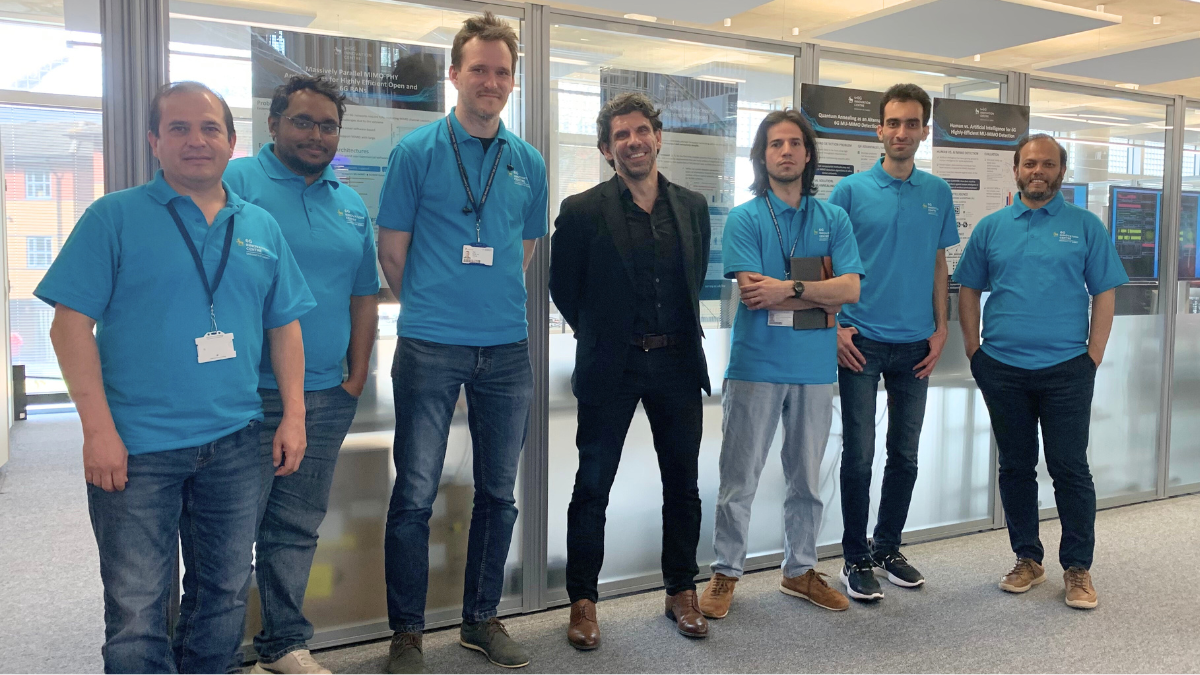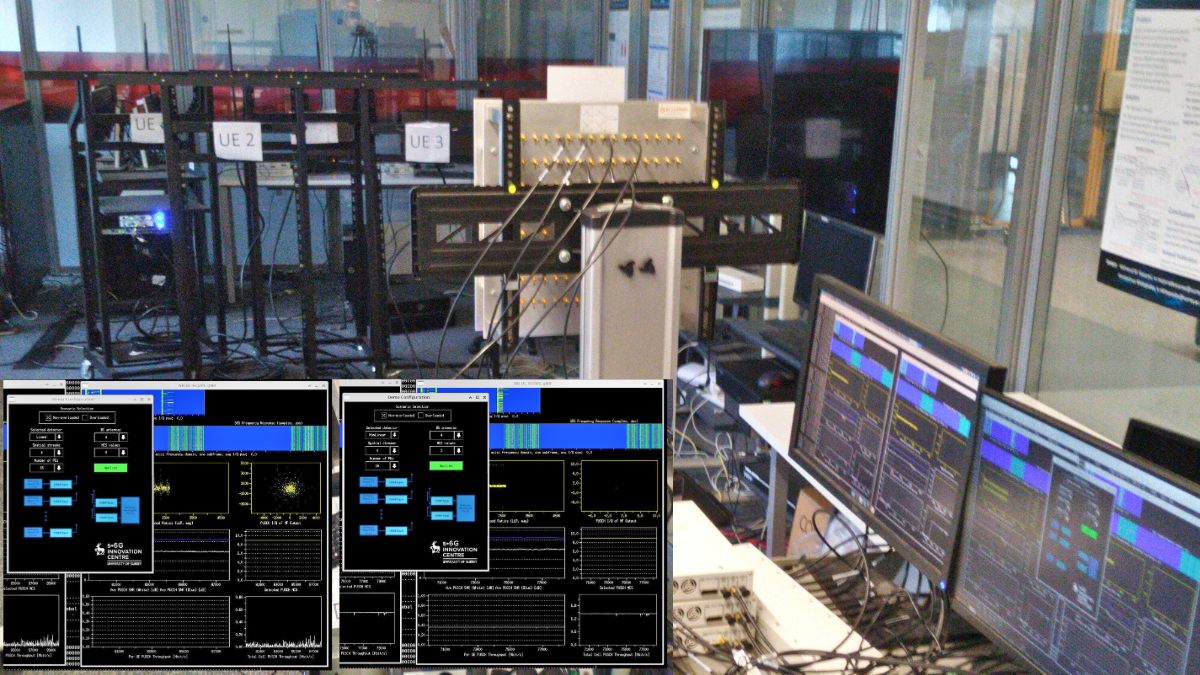Non-linear processing breakthrough: faster and more efficient wireless networks thanks to Surrey research
University of Surrey researchers are developing new, close-to-market signal processing methods that can revolutionise future wireless communication systems.

They will do so by optimising the way we explore the limited available spatial, frequency and time resources, in a project called NL-COMM.

As the team shows in this video using this demonstrator, more users can be accommodated with fewer antennae, better exploring the spatial, frequency and time resources, and potentially resulting in substantial power savings.
NL-COMM is one of the two Surrey projects awarded funding through the Small Business Research Initiative in Future Telecommunications Challenge. This forms part of a £62m investment from UKRI, the public body that funds research and innovation.
Another team of Surrey researchers will investigate a new kind of 'sweeping' antenna. These could reduce mobile 'blackspots' by deploying a network of swept beam masts.
The research will be funded by UKRI's Technology Missions Fund Future Telecoms Mission.
Related sustainable development goals


